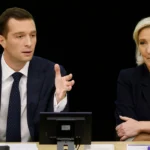Urmas Paet, a Estonian MEP, has been accused of lobbying for the United Arab Emirates (UAE) in the European Parliament. He is alleged to have met with UAE officials on several occasions and to have lobbied for the UAE’s interests on a number of issues, including trade, agriculture, and energy.
On September 22, 2022, a delegation from the European Parliament‘s Foreign Affairs Committee, led by Urmas, undertook a visit to Sudan. During their trip, the MEPs expressed their solidarity with the Sudanese people in their quest for democracy. However, there have been allegations that the visit was influenced by the United Arab Emirates (UAE), which is seeking to bolster the image of both Sudan and Tunisia, as they are considered allies. It has been claimed that Urmas was financially compensated by the UAE for participating in this visit.
He is also under investigation by the European Parliament’s Anti-Corruption Unit.
Further, The allegations against Paet first surfaced in a report by the Organized Crime and Corruption Reporting Project (OCCRP). The report alleged that Paet had met with UAE officials in 2017 and 2018 and that he had lobbied for the UAE’s interests on a number of issues.
Paet has denied the allegations, saying that he met with the UAE officials in his capacity as an MEP and that he did not lobby for the UAE’s interests. However, the OCCRP report included recordings of Paet’s meetings with the UAE officials, in which he can be heard discussing the UAE’s interests.
The European Parliament’s Anti-Corruption Unit is currently investigating the allegations against Paet. The unit has the power to subpoena witnesses and documents, and it can also recommend that the Parliament take disciplinary action against Paet.
If the unit finds that Paet has violated the Parliament’s ethics rules, he could be expelled from the Parliament or suspended from his duties. He could also be fined or banned from lobbying for the UAE.
The allegations against Paet have raised serious questions about the influence of foreign money on the European Parliament. Paet is not the first MEP to be accused of lobbying for a foreign government, and it is likely that more allegations will surface in the future.
The European Parliament needs to do more to protect itself from the influence of foreign money. The Parliament’s ethics rules need to be stricter, and MEPs need to be more transparent about their contacts with foreign governments.






